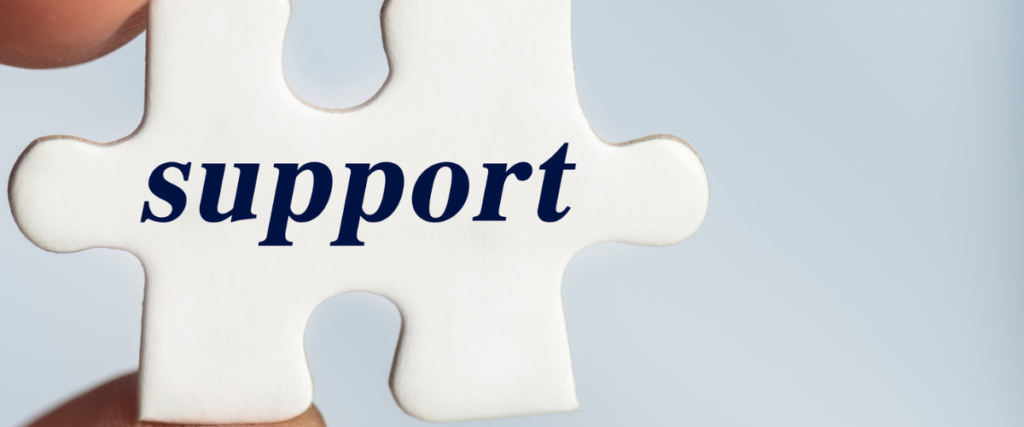
REALISTIC EXPECTATIONS OF RECOVERY
(FOR BOTH YOU AND YOUR LOVED ONE)
When we start the journey of recovery with our loved ones, we firstly seek reassurance that we as parents did not cause this. Let me just say – YOU MOST CERTAINLY DID NOT! and I really hope that you can be supported to ease any doubts you might have around this. Once those thoughts and feelings, (which can often lead to us being paralyzed, rather than effective) are out of the way, we can then focus on gathering information and taking action. As parents, partners and loved ones, we imagine recovery as a straight line. As parents, we have spent all of our time trying to solve problems that arise for our loved ones – trying to make it all better for them. We think, quite logically, that the solution to this problem can be solved in the same way and with the same tools that we use to solve other problems:
- ·“There is a problem, I will learn how to resolve it, do it and it will be gone”.
- ·“I’ll do what is recommended and I will see the results”
- ·“The more effort we put in, the more results we will see”
- ·“The harder we try, the quicker the results”
Sounds very logical and makes sense, but
… that is not the case when it comes to eating disorder recovery…
Recovery is not a linear process!!!
- You often invest LOTS and LOTS of energy into your loved one’s recovery journey and things seem to be worse not better (I will explain why this is later on).
- You often try super hard and your loved one only gets more and more resistant (well… their eating disorder does, to be precise).
- Sometimes, after following all the recommendations and putting in lots of effort they end up in a hospital or residential care setting.
- Recovery seems to be going well and there is a sudden lapse or slip and your loved one seems to be “back to square one”.
I will try to explain it all so you can relax (particularly around the things that you can’t control) and be smarter and know how to act when things are in your control. To explain this properly, I will have to discuss the nature of the eating disorder and also how our brain reacts to change and adapts to new habits:
1. You often invest LOTS and LOTS of energy into your loved one’s recovery journey. Things seem to be worse, not better and the eating disorder (or loved one?) seems to be more and more resistant.
An eating disorder is a functional disorder. What does this mean? It means that your loved one had a good reason to develop an eating disorder. It has served a purpose in your loved one’s life – and at least part of them will not be happy to let it go.
So secret number one – you are playing a different game here (you can’t solve it with your normal logic, which is that more effort = more results). In this game, your loved one, who you are trying to help, will not want and appreciate the help at all. You are motivated for change. They are not. As a result, they will see the change as an attack, something to rebel against.


Or perhaps they are more ambivalent, meaning that part of them wants to get better BUT part of them doesn’t.
As a result, they are in a NO WIN situation. When they do the right thing in recovery, the eating disorder part will make them suffer. If they give into the eating disorder, the healthy part will make them feel guilty and a big failure. As you can appreciate, this is a very difficult (and lonely) place to live.
Even people who are super super motivated to get better and who really want recovery, battle that part of them that is scared or does not want to change.
Why?
Because:
- our brain does not like change much because change requires effort. We have to create new pathways in the brain rather than go on autopilot,
- our brain gets bored quickly. This means that we can start out motivated and enthusiastic because new things are exciting. After a while, though, boredom or repetition leads to fatigue. This is because while it still requires effort (as it is not wired
into our brain yet), it is not exciting anymore because it is not new. So, we go back to autopilot in no time, - we turn to soothing behaviours on a subconscious level to preserve energy,
- When we are well, we can do the hard work and practice new behaviours. When we are in pain, stressed or scared, we switch to our survival brain. (This is not a decision we make; it happens to protect us.) Guess what survival brain likes? Old pathways – the autopilot.


Sometimes, after following all the recommendations and putting in lots of effort, your loved one ends up in a hospital or residential care setting.
Again, that is confusing when we use our “normal logic”, but it makes sense if we look at the nature of an eating disorder and the brain. As I mentioned earlier, the brain does not like change, (indeed it opposes change). However, if something is about survival it gets prioritized and gets wired into the brain very quickly. We can ask ourselves: How on earth can the brain think that eating disorder behaviours (the ones that are slowly destroying our loved one’s health and social connections) are good for survival?
- It’s part of our culture (the diet culture we live in). In our culture we believe in both “the thinner the better” and the second, scary part – no matter what the cost. Many times, you will have heard an adult say, “oh I know this is probably not healthy, not good for me, but I will do it because I need to lose weight’. This could involve taking some strange tablets or drinks, crazy diets, fasts etc.
- People who develop eating disorders usually have some combination of genetic traits that makes them more sensitive to messages like that – they are perfectionists, they are very sensitive to social cues and that makes them more avoidant of negative consequences– because if you see more and experience more you have to protect yourself more
- The eating disorder part of the person develops a set of rigid rules. It punishes the person when they don’t obey – so that activates that avoidant part of the brain. People often say “I can’t eat, not that I don’t want to, or I am not hungry. I want to eat, and I am starving but I can’t because the cost of it is too high. I can’t feel how I feel when I have all those punishing thoughts and feelings. It’s too much”.
So now understanding the brain and the nature of the eating disorder a bit more, we can see that sometimes an-eating disorder develops and develops fast despite our best efforts. It does not mean we should not do our best. We just have to understand it is something we can’t always win against.
When a person’s brain is so rigid, stuck and in a trap of eating disorder thoughts and punishing behaviours, they sometimes need a higher level of care to start the rewiring of the brain, meaning a stay in a hospital or residential treatment setting.

Any hospital stay is usually short and focuses purely on medical stability, not psychological help. When a person is in residential care, they typically have a few months of being in an environment where being able to practice their usual eating disorder behaviours is harder, they receive 24h support, helping them to face their fears and work on their nutritional
rehabilitation. This helps the brain to be less rigid (ah…I forgot to mention starved brains are super rigid and easily triggered!).
So – in this new game we are playing, where we are living with an eating disorder, hospital or residential treatment is not a sign of failure for either your loved one or you. It is a part of the journey (yes, that is still the case regardless of how many times they may need it).
Recovery seems to be going well and there is a sudden lapse or slip and your loved one seems to be “back to square one”.
From what I’ve already explained about the brain perspective, I hope you can understand that it is quite typical that recovery goes up and down. It is long and slow – there is so much of the brain to rewire. When we try something new (which our loved one is doing as part of the recovery process), we start well because it is exciting, but then the brain gets bored, and we feel like we are slipping back.
There is also a second aspect. As your loved one gets better, they do more, and they live more. This brings more challenges and more stress. When the brain is exposed to stress, it reverts to old habits and saves energy.
So, what can we do? How can we play this new game?
- We have to learn to suck at recovery and teach them to be ok to suck at recovery,
- This new attitude is not really about being bad at something. We have to adapt to the reality of the situation here. If what we are dealing with is so complex, (which is the case when we’re dealing with eating disorders) and if we accept that our loved one is in a “no win” situation for part of their recovery – no matter what we do, we also have to accept that:
- They may go through phases of being better and slipping back to old habits
- They may be hospitalized even if we are doing the right thing
We HAVE TO STOP EXPECTING SUCCESS and especially expecting a QUICK success. It is more about directing our resources (and the limited energy that we have) away from feeling stuck, feeling like a failure, worrying, panicking and feeling helpless – towards getting support, learning from mistakes, adapting, changing direction and getting more support.
Being good at ‘sucking’ helps to manage the moody nature of motivation – we can’t maintain motivation because we simply want to. It is an energy that that comes and goes (remember how the brain works), depending on how well we are, how excited we are about the task and how exhausting it is. When the motivation wanes, we go back to old habits and save energy.
That is the nature of things. When we understand that, relax and in times of less motivation and less energy look for support, we move forward. When we beat ourselves up when energy and motivation is low, we get deeper and deeper into that state of lacking energy.
The most important ingredient of successful recovery is to KEEP GOING. Sometimes faster, sometimes slower, but keep going. I love this quote by Abraham Lincoln: “Success is the ability to move from one failure to another without loss of enthusiasm”.
In the eating disorder world, that we have all unexpectedly found ourselves living in, I would translate it to “success is the ability to go from one failure to another without losing too much energy beating ourselves up, panicking and feeling helpless because you understand that this is how recovery works”.
You can do all this, and you can teach your loved one to keep going, to keep making sometimes very small steps. You both have to stop striving for perfection though. You have to abandon your unrealistic expectations and teach your loved one to do the same.
When your loved one slips – they just have to get more support and keep going. You have to get support to be able to support them and keep going. The game is not titled “will they ever recover, are they able to recover” because everyone can. The game is about not burning out to see the end of recovery. You just need to keep going long enough. (Yes, learning and adapting too as repeating the same mistakes does not help. Contrary to our beliefs we don’t learn better when we feel bad or ashamed.)
Remember when I spoke about the genetic traits – being perfectionistic, avoidant, sensitive? As a parent, you may have those traits too. So it also won’t be easy for you to change gears, to not focus on success and to accept lower expectations. Good thing – once you master that you can model it for them.
A lot of the research about what helps and what hinders recovery proves that realistic expectations are the key. Realistic expectations of the person and their support network. Remember – sometimes you have to hold on to hope for them, show them the way when they feel burned out and helpless.
When you understand the process; know what you are dealing with and can be more relaxed about things that are not in your control – you panic less, worry less and can fully focus on learning and adapting.

So, we all have to change to a slower gear and:
- Learn that this is a marathon, not a sprint and that you may need support
- Learn to embrace the messy (up and down, up and down) nature of recovery.
- Learn that slips, lapses and even relapses are part of the journey – something we learn from, not panic about
- Learn to observe without judgement
- Learn that mindfulness is the key to change habits. Rush, panic and unrealistic expectations kill mindfulness.
DON’T FIGHT WITH THE AMBIVALENCE, learn to ROLL WITH IT.
- Parents have to learn new skills. You are not dealing with a rational brain, you are dealing with a highly stressed, triggered brain. Those are the skills therapists, psychologists, coaches learn for years. You too may need months, years to master them – try a support group, skill-based course, or individual coaching.
- What we need to change and rewire the brain and develop new habits is practicing CURIOSITY, being more and more MINDFUL about our actions. We need to feel safe, to be more in the rational brain, not in a survival brain.
- Those are all new skills, so be patient and teach your loved one to be patient.






